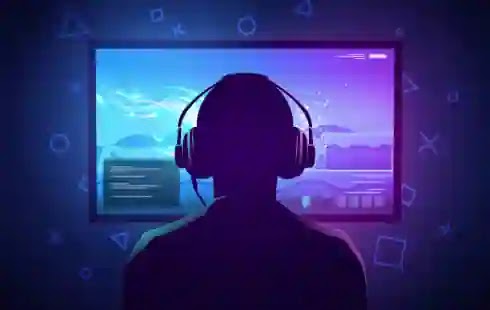Does innovation block or help youngsters' learning
We work intimately with industry, government and schools to convey devices, tips and assets to families across the UK to assist youngsters with profiting from shrewd and safely associated innovation.
Kids under five have an unstoppable propensity for knowing how to dominate new innovation.
From PDAs to tablet PCs and game control center, it's normal to see little children naturally swipe screens and without hesitation press buttons.
Despite the fact that guardians partake in the transient harmony that accompanies giving a device to a little youngster to play with, guardians furtively stress that this screen time is harming their minds.
In any case, apparently screens can be valuable for learning - and interactive should the experience as much as possible.
Research from the College of Wisconsin, introduced at a gathering of the General public for research in kid improvement this week, observed that youngsters between the ages of two and three were bound to answer video screens that provoked kids to contact them than to video screens that requested no communication.
The more intelligent the review was, the more genuine it was, and the more recognizable it was according to the viewpoint of a two-year-old than the review recommended.
Heather Kirkorian, aide teacher in human turn of events and family studies, directed the examination and says contact screens can hold instructive potential for babies.
At the point when she did one more test on learning words, the outcomes were rehashed.
"Yet, we're not transforming them into prodigies, simply assisting them with getting somewhat more data."
Adornments
So inhale all the more effectively guardians, your kid is simply doing what works out easily and collaborates with the world
Anyway, innovation, as telephones and tablets, is staying put. Numerous grade schools and some pre-schools have brought the iPad into the study hall to work with learning. Innovation, understanding how things work, and ICT are important for the educational program.
"I'm not one of the individuals who feel that we shouldn't open kids to mobiles, tablets, and so on," says Hélène moylet, leader of early training, a cause that plans to further develop showing practice and quality for under-fives.
"They can be truly valuable and fascinating apparatuses whenever utilized perfectly positioned to assist us with learning - and not constantly, or rather different things."
In any case, their primary concern is that guardians are not generally great good examples.
"I see guardians walking. Frequently they are so connected to their gadget that it turns into an obstruction to correspondence with their youngster. "
A new report by Stirling College's Institute of Schooling observed that the family's demeanor to innovation at home was a critical figure impacting a youngster's relationship with him.
It shut: "the experiences of three to five-year-olds are intervened by the different group environment of each and every family and the tendencies of each and every youngster.
"Development didn't overpower or drive young people's experiences; rather their longings and their family culture shaped their sorts of alliance. "
Christine Stephen, creator and Exploration Individual at Stirling, says that most guardians figure out the risks of enslavement and latency, and set rules on screen time to guarantee that youngsters do many indoor and open air exercises.
Vice
In any case, there are different specialists in this field who conflict.
Therapist Dr. Arik Sigman has routinely expressed that youngsters are observing more screen media than any other time in recent memory, and this propensity ought to be checked on the grounds that it can prompt fixation or misery.
They determined that youngsters conceived today would spend the entire seven years stuck to the screen.
If valid, some will contend that this reality is startling.
All things considered, if by some stroke of good luck 9% of UK youngsters don't approach PCs at home or school, as review show, screens are far reaching. There is no return starting there.
Kids ought to involve their time before them to help their advancing by downloading the best application and the right programming.
Jackie Swamp, teacher of training at the College of Sheffield, says more examination should be finished around here.
"We will recognize our point of view should be the rule for good applications since there is a shortfall of central resource for teachers.
"It's not only an instance of surrendering those iPads," she says.
"Finding out about the applications is gigantic."
Creating abilities
She likewise says that great quality projects and unique programming can assist youngsters with mastering challenges foster abilities that they need.
He said the web-based climate can give a virtual space to youngsters to foster certainty - something they can't do at home or in the study hall.
Her message to guardians is that two hours of screen time every day is enough for youngsters matured six and under.
Despite the fact that there is a minority who consider screens not beneficial, there is no proof to recommend they are unsafe, says Prof Swamp.
Youngsters rapidly get exhausted with a sort of Media, Exploration shows, and consolidate screen time with playing with toys and strolling in regions outside the circle.
"We're in awful karma at the bar [of screen Tem], yet the todlars are very elevating and endearing," says Moylett.
"Kids are being acquainted with a considerable number of things"
Maybe, eventually, they simply need to appreciate innovation the manner in which grown-ups do.







